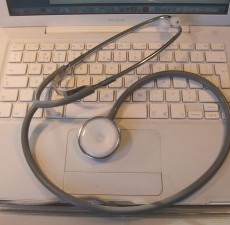 In what one sorta-kinda hopes is a tongue-in-cheek article in the week 51 issue of Dutch medical journal Nederlands Tijdschrift voor Geneeskunde, Cornelis Langeveld has looked at medical romances and whether they “give a realistic picture of medical practice”.
In what one sorta-kinda hopes is a tongue-in-cheek article in the week 51 issue of Dutch medical journal Nederlands Tijdschrift voor Geneeskunde, Cornelis Langeveld has looked at medical romances and whether they “give a realistic picture of medical practice”.
“The doctor novels which were studied give an unbalanced and distorted view of medical practice. The medical information was sometimes incorrect, partly due to lack of knowledge by the author, partly due to incorrect translation from English. The reality of medical practice was not represented accurately in either of the series investigated, although the medical information in the ‘Doctor novels’ [Harlequin] series appeared to be accurate more often than that in the ‘Dr. Anne’ [Favoriet] series.”
“The medical situations were located mostly in hospital emergency departments and operating rooms. Medical specialisms were represented mainly by surgeons, emergency care doctors, orthopaedic specialists, cardiologists and gynaecologists.”
Langveld wonders if the unbalanced and distorted view is such a bad thing. “One may expect adult readers to be able to differentiate between fact and fiction. The readers of the Doctors Novels series received a number of valuable lessons apart from the medical mistakes, like the answer of the country doctor to the question what she used her maternity leave for: ‘Read,’ she replied demurely. ‘Read, read, I do nothing but read. And no romance novels or thrillers or gossip magazines either, but medical journals. They are educational.'”
